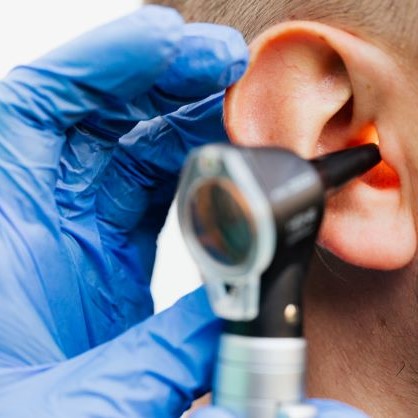“Dish ban is may zing”
“What?”
“WHAT!?”
– A Conversation at a Concert: “This band is amazing.”
What’s The Story?
I went to a concert recently and forgot to bring earplugs. Once I left the show, the world sounded muffled but I felt “back to normal” the next day. I spent some time afterwards wondering about the concert’s impact on my ears and hearing. I realized that I don’t actually know a lot about keeping my hearing working well.
We brush our teeth and exercise to maintain our bodies in other ways. So, what can we do to maintain our ears? Can hearing loss be reversed or prevented? If you’re at all curious about how to keep this vital sense intact too, keep reading, let’s learn together.
How Does Hearing Work?
Hearing Is a Complex Process
In the most simple terms, our ears are the machines which turn sound vibrations in the air into electrical signals. These electrical signals are read by the cells in our brains, called neurons, and interpreted as sound.
How Hearing Loss Happens
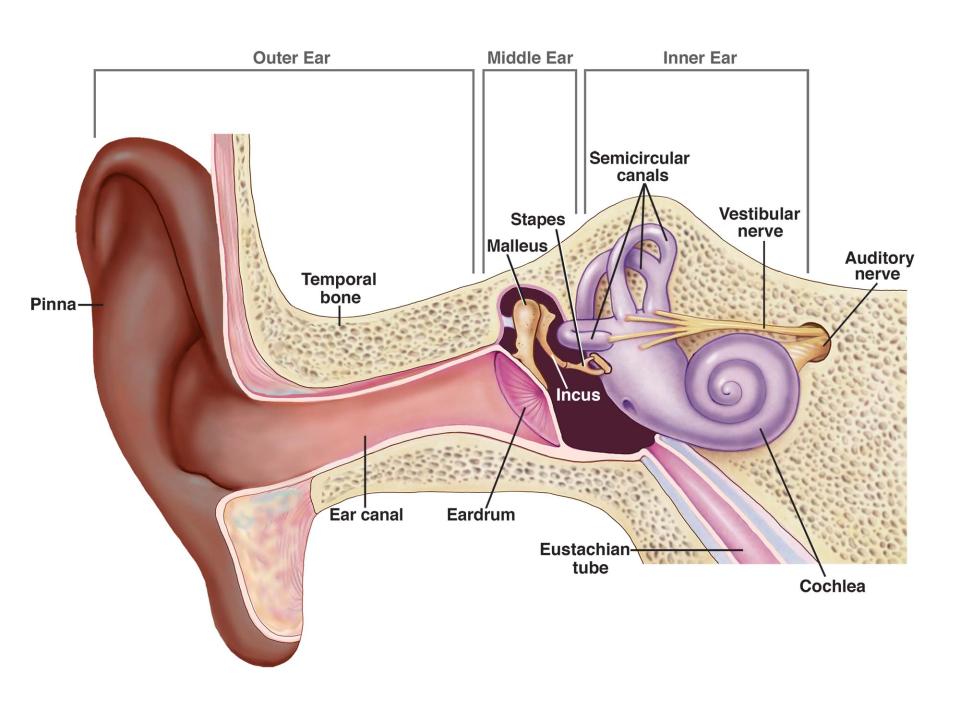
Hearing loss can occur in many ways. Any time one of the small and delicate pieces of equipment of our ear machines break, we can experience hearing damage or loss. However for now, we will focus on one piece of equipment.
There are hair-like cells in our inner ear that convert sound vibrations into the signals that the nerves in our brain understand. Damage to these “hair cells” results in their death. Hearing loss is noticeable when enough of these special hair cells die. Unfortunately for humans, we have no way of growing new cells. This means that hearing loss due to cell death is permanent.
Hearing and Harm
What’s Bad For Hearing?
Here are some examples of things that cause damage and death to the sensitive hair cells in the ears.
Things we can’t control:
– Genetics
– Diseases
– Aging
Things we can control:
– Nutrition
– Lifestyle
– Drug and Medication Use
– Noise
Noise Induced Hearing Loss (NIHL)
NIHL is hearing loss caused by loud noises. Preventing NIHL may help prevent other types of hearing loss. For example, even when older people lose their hearing, it is often from a combination of age and noise related factors.
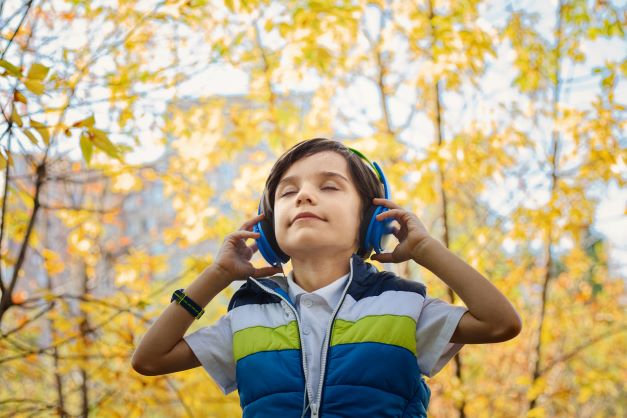
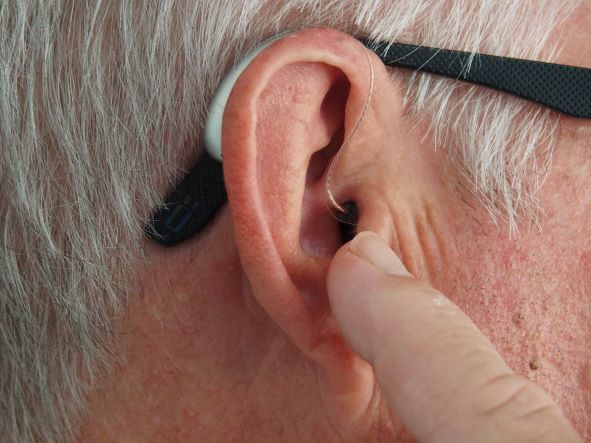
The system used to measure sound is called a decibel (dB). The World Health Organization defines hearing loss as being unable to hear sounds at or below 20 dB. Scientists believe that exposure to sound over 85 dB is bad for the ears. Louder sound and longer exposure causes more damage. For example, the volume of a whisper is around 30 dB and normal conversation is about 50 – 65 dB. Things like going to the movies, concerts, and fireworks all usually fall above the 85 dB damage range.
See “Talk Nerdy to Me” for a list of common noises and average level of sound.
People who have temporary hearing loss caused by noise typically recover within 48 hours. However, evidence suggests some ear damage is permanent each time this happens.
Drugs Can Cause Hearing Loss
Cigarette smoking has been shown to be bad for us in a number of ways. But did you know it may also hurt our hearing? Smoke contains nicotine and carbon monoxide. Studies say these chemicals reduce the delivery of nutrients to the small blood vessels in our ears. Just one more reason to leave smoking behind.
Medical drugs may cause hearing loss as well. Most healthcare professionals are familiar with common examples. These include certain medications to fight cancer, infections, and treat high blood pressure. Some of these drugs only cause temporary hearing loss, but others may cause permanent damage. If you are concerned that any medications you are taking may be bad for your hearing, call or visit your pharmacist. This is exactly what we are here for!
Tips for Healthy Ears
Can You Reverse Hearing Loss?
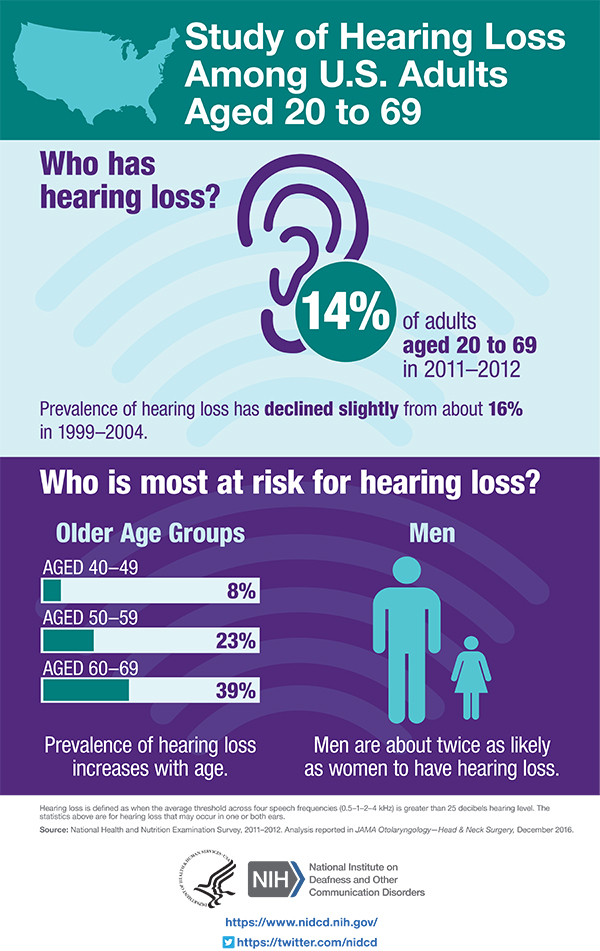
Unfortunately there is still no surefire way to bring back hearing after it has been permanently damaged.
Scientists are still investigating ways to prevent and restore damage from noise, diseases, drugs, and other causes of hearing loss. Early research suggests that hearing loss is complicated. Therefore, treating hearing loss may be complicated as well. It could require multiple medications and lifestyle changes. But there is good news. The rate of hearing loss has been on the decline in recent years. Maybe being aware of our hearing health has helped people make better decisions for their ears.
Fortunately, we have devices like hearing aids that can keep us listening for years to come. But I always say, nothing works as well as the original equipment. For this reason, I think it’s important to focus on preserving our hearing.
How to Prevent Hearing Loss
One of the best methods to avoid preventable hearing loss is to limit the amount of noise your ears are exposed to.
Keeping Your Ears Protected
At concerts, fireworks shows, and other loud events, bring earplugs. A decent pair of plugs will allow you to enjoy yourself while still enjoying your ears for years to come.
Recently, I downloaded a decibel meter application on my phone. I really like this app. It’s a great way to help you make ear-health decisions. This tool puts control in your palms and keeps you mindful about the sounds around you. If you find the noise level is too loud, relocate. Remember that you are the best advocate for your own health.
Healthy Lifestyle, Healthy Hearing
The cliche of diet and exercise applies everywhere. But what if I told you that it may be the key to protecting your sound sniffers? Some preventable or manageable diseases can cause damage to our ears. Studies have shown that high blood pressure, diabetes, and obesity are associated with hearing loss in the long term. Diet and exercise helps prevent these diseases. If you are already living with one of these conditions, a healthy lifestyle can help manage your symptoms and prevent unnecessary damage to your ears.
Even without other diseases, a good diet may keep our hearing intact. Evidence says that the build up of destructive chemicals, called free radicals, and slow blood flow in the inner ear may contribute to hearing loss. Antioxidants play an important role in preventing the formation of free radicals. Luckily for us, the antioxidants we get from a well balanced diet provide a great defense against these nasty free radicals. Check out this article for more information on how to maximize the antioxidants in your diet.
When To See A Professional
If you experience any sudden hearing loss or other hearing related issues like tinnitus, or ringing in the ears, please seek the advice of a qualified healthcare pro. These folk have jobs such as an otolaryngologist (commonly known as an ENT), audiologist, or speech-language pathologist.
Conclusions
Thanks for learning about a new topic with me. To wrap it all up, here are the things I thought were most interesting to know.
Our ears are complicated pieces of equipment. Humans can’t replace the parts that pick up sound waves if they die. Protect your ears at all costs by thinking about the level of sound around you. Use earplugs if you know you’re going to be around loud noises. Keep a healthy diet and lifestyle to keep your ears working well and prevent diseases that may hurt your hearing.
Talk Nerdy to Me (Details for Professionals and Curious Minds)
Decibel Level Reference Ranges
| SOUND | DECIBEL RANGE (dB) |
| Whisper | 30 |
| Normal Conversation | 50 – 65 |
| Movie Theater | 74 – 104 |
| City Traffic | 80 – 85 |
| Maximum Volume Headphones, Motorbike, Concert | 95 – 110 |
| Siren, Nightclub | 110 – 129 |
| Nearby Firework, Cannon * | 140 – 160 |
Mechanisms of Hearing Loss
It is proposed that much of the mechanism for sensorineural hearing loss comes as a result of decreased circulation through the delicate machinations of the inner ear. Hypertension achieves this damage through microangiopathy. This results in a reduction in overall cochlear blood circulation. This mechanism is shared among other conditions such as diabetes, dyslipidemia, and obesity. Diabetes in particular appears to dampen neuronal function in addition to causing vascular damage. The nicotine and carbon monoxide in cigarette smoke has also been shown in several studies to reduce the efficiency of oxygen exchange within the inner ear resulting in a similar phenomenon.
Free Radical Ototoxicity
Excessive free radical production in tandem with reduced cochlear blood circulation has been proposed by several studies as a mechanism of hearing loss. As reactive oxygen species (ROS) accumulate, they become toxic. The damage caused by lipid and protein oxidation at various intracellular loci are thought to lead to cellular death. This mechanism appears to be validated through the use of vasodilators and antioxidants as an abative technique in the setting of pharmaceutical induced ototoxicity.
Pharmacologic Ototoxicity
Pharmacologic ototoxicity can occur by a variety of mechanisms. Although the manifestation of toxicity is hearing loss, damage depends on the pharmacologic property and affected organic structure. For example, toxicity can occur directly within the structures of the ear or may impact areas of the brain which interact with sensory impulses. In either case, ototoxic synergism may occur with exposure to multiple ototoxic agents even if the doses of the individual agents may be below the typical toxic threshold. Common examples of ototoxic drugs include: platinum analogs (cisplatin), aminoglycosides (gentamicin), and loop diuretics (furosemide). However, It is currently estimated that over 740 drugs exhibit some degree of ototoxicity under certain conditions. There are currently no FDA approved treatments for this sub-genre of hearing loss although research is ongoing.
References
- Age-Related Hearing Loss. National Institute of Deafness and Other Communication Disorders. https://www.nidcd.nih.gov/health/age-related-hearing-loss. Published March 16, 2022. Accessed July 31, 2022.
- Noise Induced Hearing Loss. National Institute of Deafness and Other Communication Disorders. https://www.nidcd.nih.gov/health/age-related-hearing-loss. Published March 16, 2022. Accessed July 31, 2022.
- Yikawe SS, Iseh KR, Sabir AA, Inoh MI, Solomon JH, Aliyu N. Cardiovascular risk factors and hearing loss among adults in a tertiary center of Northwestern Nigeria. World J Otorhinolaryngol Head Neck Surg. 2017;4(4):253-257. Published 2017 Aug 18. doi:10.1016/j.wjorl.2017.05.015
- Ding T, Yan A, Liu K. What is noise-induced hearing loss?. Br J Hosp Med (Lond). 2019;80(9):525-529. doi:10.12968/hmed.2019.80.9.525
- Bisht M, Bist SS. Ototoxicity: the hidden menace. Indian J Otolaryngol Head Neck Surg. 2011;63(3):255-259. doi:10.1007/s12070-011-0151-8
- Alvarado JC, Fuentes-Santamaría V, Melgar-Rojas P, et al. Synergistic effects of free radical scavengers and cochlear vasodilators: a new otoprotective strategy for age-related hearing loss. Front Aging Neurosci. 2015;7:86. Published 2015 May 15. doi:10.3389/fnagi.2015.00086
- Hoffman HJ, Dobie RA, Losonczy KG, Themann CL, Flamme GA. Declining Prevalence of Hearing Loss in US Adults Aged 20 to 69 Years. JAMA Otolaryngol Head Neck Surg. 2017;143(3):274-285. doi:10.1001/jamaoto.2016.3527
Thanks for reading. If you have any questions or ideas for future articles feel free to contact us.

